Table of Contents
Weight Management Test
Discover how to reach your weight goal. This at-home blood and saliva Weight Management Test by Thorne provides insights by measuring key biomarkers associated with weight management. Results include a personalized health plan.
You should take this test if you
- Are having difficulty controlling your weight
- Experience persistent stress (that can influence weight)
- Want to understand how your hormones are related to your weight
- Don’t feel rested after sleeping
- Feel sluggish and fatigued
- Have frequent sugar cravings
What you’ll discover

Measures
Your personal biomarker values are displayed on an easy-to-read dashboard with descriptions of what each biomarker value means for you.

Analysis
Using your biomarkers, we provide detailed insights to help identify potential health risks or specific areas of improvement. Insights are generated using Thorne’s Health Intelligence platform.

Improvement Plan
Based on your unique Weight Management Test results, a comprehensive improvement plan with diet, activity, and supplement recommendations is generated.
What we measure
How it works

1 • Order and activate
After your purchase is complete, everything you need for your at-home Weight Management Test is delivered to your door. Use the activation code located on the back of the test kit to activate your test on thorne.com and complete your health profile.

2 • Collect samples and send
Referencing the directions booklet included in your test kit, complete your sample collection from the comfort of your home. Use the prepaid shipper to mail your samples directly to the laboratory.

3 • Receive results and recommendations
Your Weight Management Test results will be reviewed by an independent, board-certified physician. Once you’ve sent your samples to the lab, after 8-10 business days you will receive your results with meaningful insights and personalized recommendations by one of our health coach professionals to promote your health and wellness.
Potential Indicators
Symptoms attributed to the need for better weight management test include:
- Easy weight gain or difficulty losing weight
- Decreases in lean muscle mass
- Increases in abdominal fat
- Fatigue
- Food or sugar cravings
- Poor tolerance for exercise
- Difficulty sleeping or anxiousness in the evening (which can contribute to weight gain)
- Abdominal fat; increased waist circumference
Weight Management Test 101
Aspects of weight management test
Obesity is a growing epidemic ‐ the average person gains 1.5 pounds of fat every year. The Centers for Disease Control and Prevention report that 40 percent of U.S. adults are obese, with the highest prevalence of obesity occurring in men and women older than 40.
Your metabolism is directly affected by your hormone levels, dietary patterns, stress levels, and your ability to maintain physical activity, muscle mass, and optimal nutritional status.
How the biomarkers measured impact your health
Your body composition changes naturally over time because of fluctuating hormone levels associated with age. Thorne’s Weight Management Test measures hormones and other biomarkers that are important regulators of body composition, including maintenance of muscle mass and changes in body fat accumulation, metabolism, and energy levels.
An imbalance in one or more of these hormone levels could be inhibiting your ability to lose weight or maintain your current weight.
Reproductive Hormones: Estrogen, progesterone, and testosterone
Estrogen (estradiol)
Estradiol is the most powerful and active form of the three forms of estrogen in the body. In addition to being important for bone health, fertility, and cardiovascular healthy, estradiol plays a role in how the body regulates weight and metabolism. In women, the level of estradiol declines normally with menopause or other conditions that alter ovarian function.
In men, their estrogen level usually increases when the level of testosterone begins to decline.
Progesterone
In women, the hormone progesterone is released by the ovaries during ovulation. It is also produced to a lesser extent in the adrenal glands. In men, progesterone is produced in the testes and also in the adrenal glands. A progesterone level not in the normal range can result in bloating and food cravings.
A person’s progesterone level is also connected to thyroid function and the body’s ability to convert fat into energy.
Testosterone
Regarding body weight, testosterone plays a role in both men and women, and it does so in several unique ways that sometimes appear to be opposite to one another. In men, a higher testosterone level is associated with more muscle, less body fat, and better insulin sensitivity; i.e., better metabolic health.
In women, however, a higher level of testosterone is associated with worse insulin sensitivity and increased body weight. Despite these nearly opposite roles, testosterone is an important biomarker for both weight/composition and metabolism, and an optimal level is beneficial in both women and men.
Thyroid hormone
Thyroid Stimulating Hormone (TSH)
In addition to the sex hormones, Thorne’s Weight Management Test measures TSH, a primary indicator of thyroid function. TSH stimulates the production of two other thyroid hormones, T3 and T4, which are responsible for regulating the speed at which cells work ‐ everything from how fast your heart beats to how fast your intestines process food.
An underactive thyroid gland can slow down your body’s metabolism, which decreases energy production and contributes to weight gain.
Blood Sugar Maintenance
Thorne’s Weight Management Test measures hemoglobin A1C (HbA1c), a biomarker of carbohydrate tolerance and blood sugar management.
Hemoglobin A1C (HbA1c)
HbA1c is a measure of your overall blood sugar control and is used as a primary marker of risk for diabetes. The HbA1c test measures your average blood sugar over the past 3-month period by measuring the amount of hemoglobin in your blood that has glucose attached to it.
Having a higher-than-average blood sugar level over this 3-month period will result in an elevated HbA1c level. Having an elevated HbA1c level increases your risk for insulin resistance, diabetes, and cardiovascular disease.
Vitamin D
Vitamin D has always been known for its capacity to support calcium absorption and bone health. More recently, an understanding of vitamin D’s wider role in the body has emerged, which includes healthy immune function, maintaining a normal inflammatory response, supporting muscle structure and function, and supporting weight management.
A low vitamin D level is associated with higher body fat and increased incidence of obesity. This is due in part to the fact that with more body fat, vitamin D ‐ a fat-soluble vitamin ‐ is taken up and stored in fat rather than circulating in the body where it can do its job.
However, some studies also suggest that a low vitamin D level plays a role in the development of obesity and related health complications. Some data even indicates that in overweight individuals with low levels of vitamin D, supplemental vitamin D can help achieve a healthy weight.
Adrenal Hormones
Cortisol
Cortisol is a hormone secreted by the adrenal glands. Cortisol has wide-ranging effects on regulating metabolism, immune function, and the body’s response to stress. An abnormal level of cortisol can have an adverse effect on appetite and body weight ‐ resulting in increased appetite and sugar cravings.
Cortisol is often called “the stress hormone” because your body releases more of it when you are experiencing stress, are ill, or have a low blood sugar level.
The level of cortisol fluctuates naturally during the day, with the highest level usually being in the morning to help you wake up, to enhance your energy and appetite, and to moderate your normal response to physical and emotional stress during the day.
When your cortisol rhythm is altered, however, a wide variety of adverse health effects can be experienced, including mood changes, energy changes, altered immune function, and weight change.
Dehydroepiandrosterone (DHEA)
DHEA is also produced in the adrenal glands, as well as in small amounts in the ovaries and testes. As a precursor hormone, DHEA is converted to testosterone and estrogen in other tissues. DHEA balances the effect of cortisol on metabolism and can be especially important for age-related weight maintenance.
The body’s production of DHEA is in direct competition with its production of cortisol, because both DHEA and cortisol utilize the same hormone precursor known as pregnenolone. Typically, stressors such as traumatic events, illness, or other life-related events significantly decrease the level of DHEA, while increasing the level of cortisol.
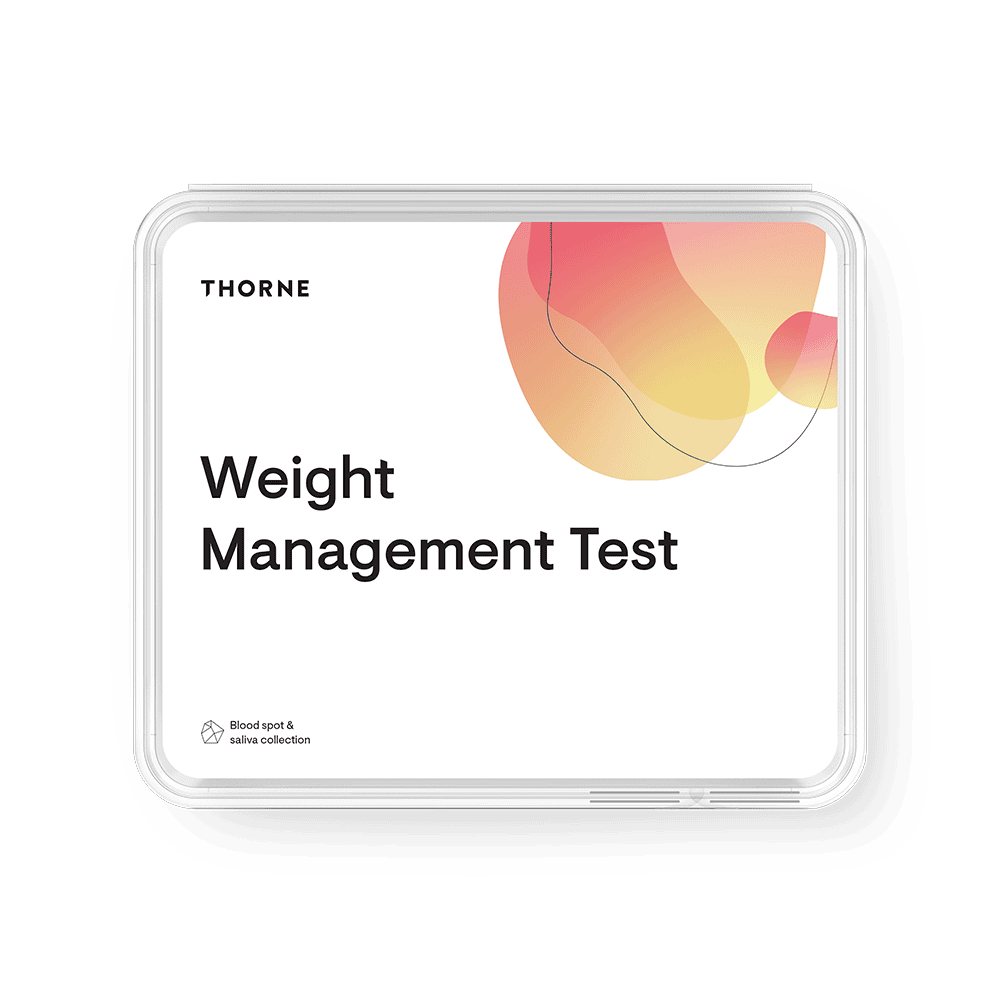
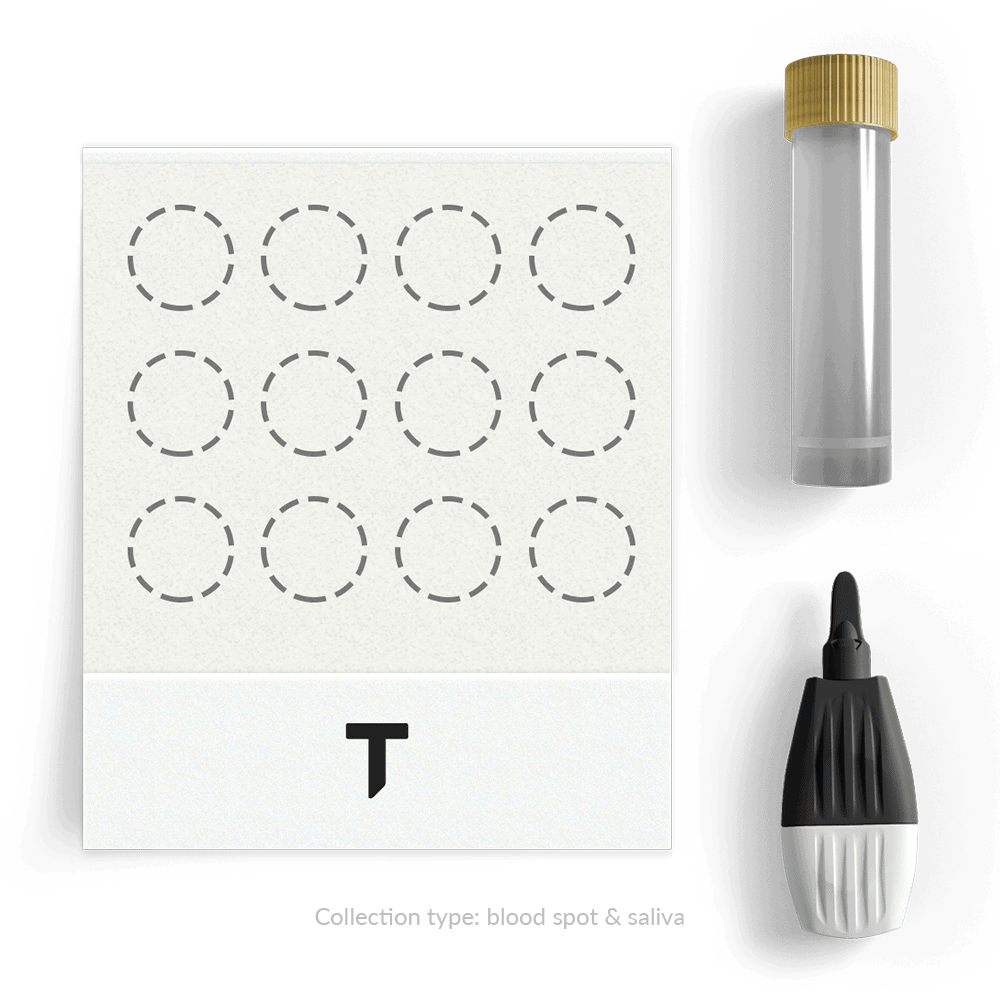
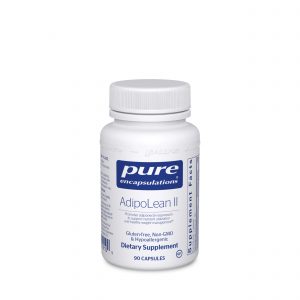


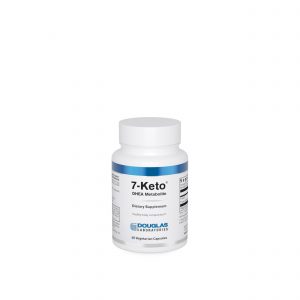
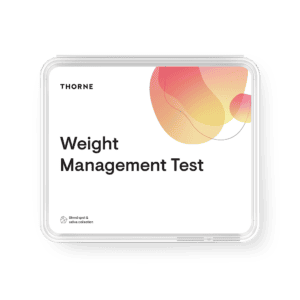
Reviews
There are no reviews yet.